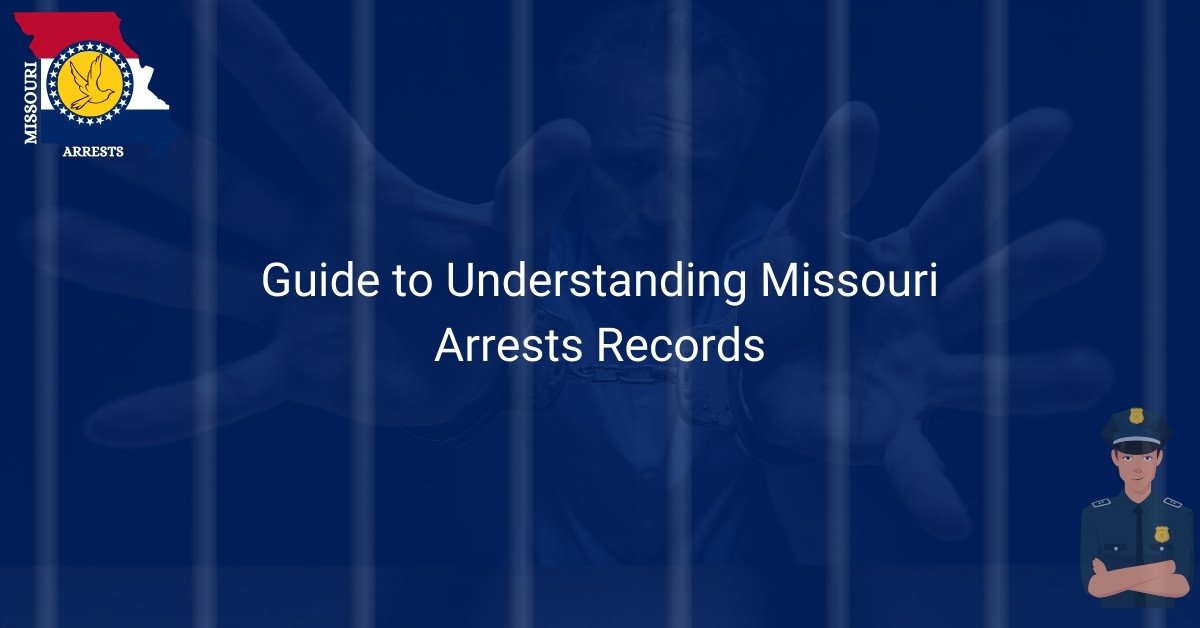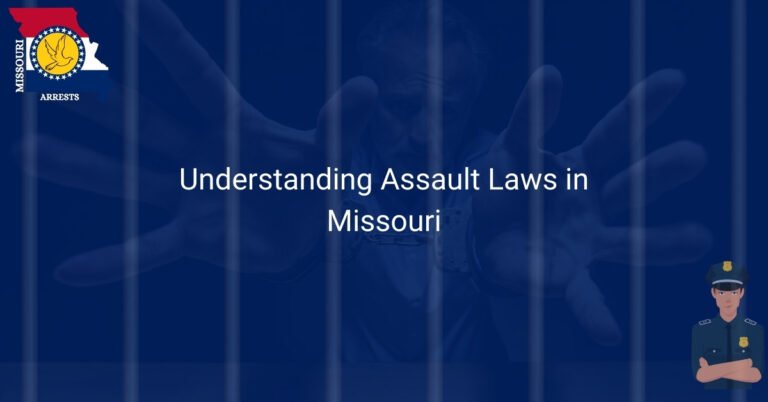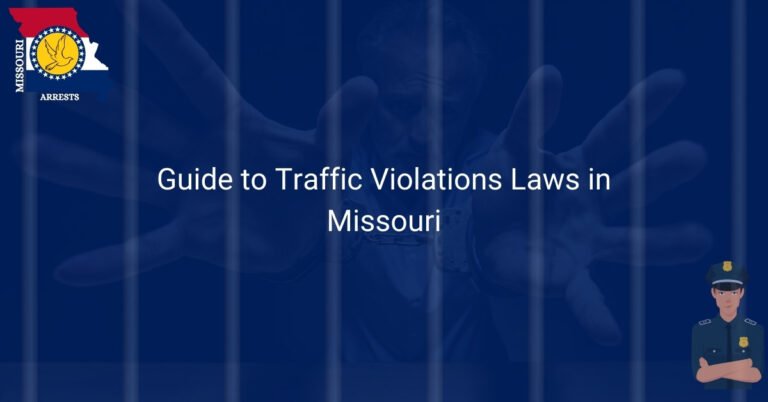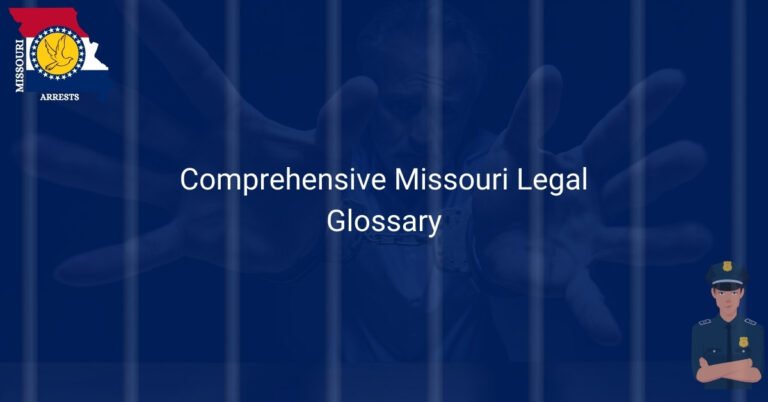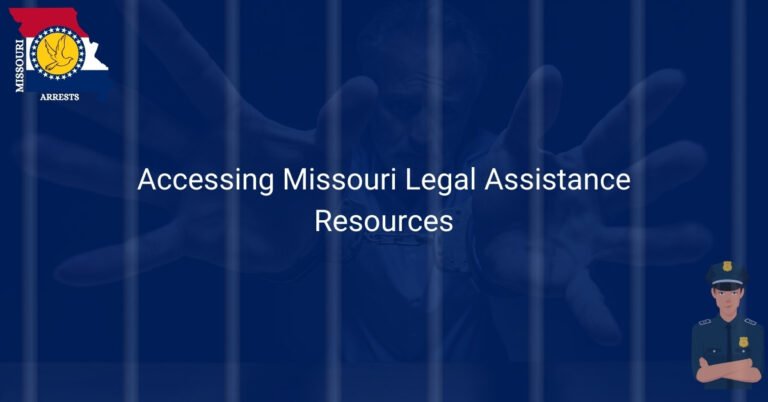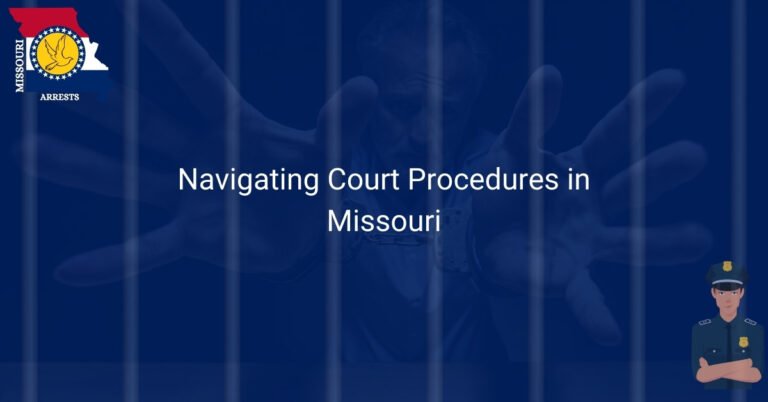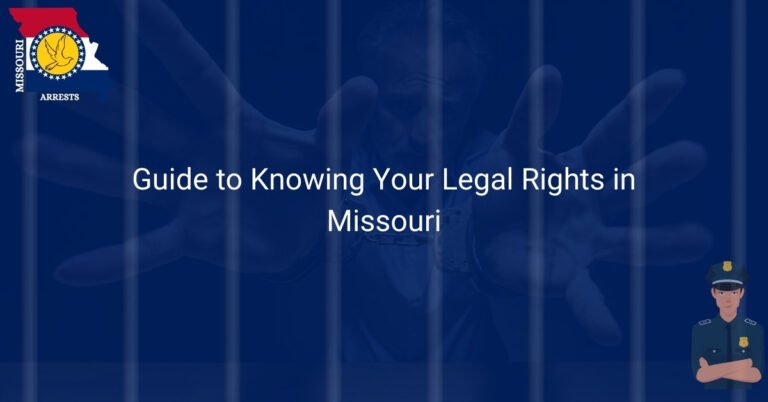Guide to Understanding Missouri Arrests Records
Arrest records in Missouri hold valuable information regarding an individual’s criminal history, providing insight into any past offenses or legal issues. These records are maintained by the state’s law enforcement agencies and are accessible to the public as part of the state’s commitment to transparency and accountability. Understanding Missouri’s arrest records can offer a comprehensive view of an individual’s involvement with the legal system, aiding in background checks and other research purposes.
By delving into Missouri’s arrest records, one can uncover details about an individual’s past interactions with law enforcement, including arrests, charges, and convictions. This information can be crucial for various purposes, such as employment screenings, tenant background checks, or personal research. With a clear understanding of how to access and interpret Missouri’s arrest records, individuals can make informed decisions based on factual information and ensure the safety and security of themselves and their communities.
Importance of Missouri Arrest Records
Arrest records in Missouri play a crucial role in providing insight into an individual’s criminal history. Whether for personal knowledge or professional purposes, understanding these records can help in making informed decisions. It serves as a valuable tool for transparency and accountability within the state.
Insight into Criminal History
Missouri arrest records offer a comprehensive view of an individual’s past encounters with law enforcement. This information can include details of arrests, charges, convictions, and more. By accessing these records, individuals and organizations can gain a better understanding of someone’s background.
Transparency and Accountability
One of the key benefits of Missouri arrest records is the promotion of transparency and accountability within the community. These records are made available to the public, ensuring that individuals are aware of any criminal history that may impact their interactions and decisions.
Public Access to Records
In Missouri, arrest records are considered public information, allowing anyone to request and view them. This accessibility promotes transparency and empowers individuals to make informed choices based on the information available to them.
State Law Enforcement Agencies
State law enforcement agencies in Missouri are responsible for maintaining and updating arrest records. By working closely with these agencies, individuals can ensure they have access to the most up-to-date and accurate information regarding arrests and criminal history.
Utilizing Missouri Arrest Records
Understanding how to utilize Missouri arrest records can be beneficial for various purposes, including background checks, research, and screenings. Whether for personal reasons or professional requirements, these records serve as a valuable resource for ensuring safety and security.
Background Checks and Research
Employers, landlords, and individuals conducting background checks can utilize Missouri arrest records to gather essential information about an individual’s past. This research can help in making informed decisions regarding employment, housing, and other interactions.
Employment and Tenant Screenings
Employers and landlords often use Missouri arrest records to screen potential employees or tenants. By accessing this information, they can ensure the safety and security of their workplace or property. It helps in making well-informed decisions regarding hiring or renting.
Personal Research Purposes
Individuals may also explore Missouri arrest records for personal research purposes. Whether curious about someone’s background or looking to ensure their safety, accessing these records can provide valuable insights and peace of mind.
Safety and Security Measures
Utilizing Missouri arrest records as a safety and security measure is essential in various situations. Whether meeting new people, hiring employees, or renting out property, having access to this information can help in taking necessary precautions and making informed choices.
Frequently Asked Questions
Our goal is to provide you with all the necessary information about Missouri Arrests Records. Below, you will find commonly asked questions regarding this topic, along with detailed explanations to guide you through.
What are Missouri Arrests Records?
Missouri Arrests Records are documents that contain information about individuals who have been arrested in the state of Missouri. These records typically include details such as the individual’s name, mugshot, date of arrest, charges filed, and more.
How can I access Missouri Arrests Records?
Missouri Arrests Records can be accessed through various channels, including online databases, law enforcement agencies, and public record repositories. It is essential to know the proper procedures and requirements for obtaining these records legally.
Are Missouri Arrests Records public information?
Yes, Missouri Arrests Records are considered public information. However, certain details may be redacted or restricted based on the sensitivity of the information or ongoing legal proceedings.
Why would someone need to access Missouri Arrests Records?
Accessing Missouri Arrests Records can be crucial for various reasons, such as background checks, legal proceedings, employment screenings, and personal safety. It helps individuals make informed decisions and understand the criminal history of a person.
How accurate and up-to-date are Missouri Arrests Records?
Missouri Arrests Records are typically accurate and up-to-date, as they are maintained by law enforcement agencies and updated regularly. However, discrepancies may occur, and it is essential to verify the information through official channels.
Can I request to remove or correct information in Missouri Arrests Records?
Yes, individuals have the right to request the removal or correction of inaccurate information in Missouri Arrests Records. The process involves submitting a formal request to the appropriate authorities and providing supporting evidence to support the request.

